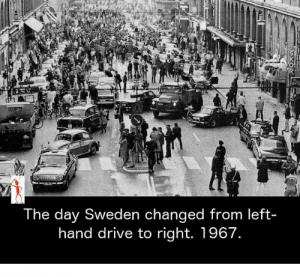Life does not always comply with our wishes; it throws some good, bad and some ugly challenges. If anything is constant, it is only change. It means that change is something that occurs continuously, change is an always-to-be-expected condition. We go through different stages of life cycle; from infancy we go to growth stage, from growth to maturity and from maturity to decline stage. At different stage of life, we get involved in different activities. Our millstones in life are compared with others. While comparing, if the focus is put on the wrong person, we become miserable. The fact is that we can control our own life, when we constantly compare ourselves to others; we waste precious energy focusing on other peoples’ lives rather than our own. Comparisons often result in bitterness.This post is about transition in life. Transition is the process or a period of changing from one state or condition to another.
The difference between change and transition is subtle but important. Change is something that happens to people, even if they don’t agree with it. Transition, on the other hand, is internal: it’ is what happens in our minds as we go through change. Change can happen very quickly, while transition usually occurs more slowly. For example, one global transition that is taking place is – in the next 25 years, the world needs to change its energy system and sharply reduce its carbon footprint in order to address global climate change. To do this, energy demand growth must slow down on a global basis and decline in some regions, and our fuel mix must change. Transitions always consume time.
Another example is the country of Sweden had a problem; they drove on the left side of the road. Not a problem in itself, but they used to face a problem when the countries surrounding region which is called the Nordic region, with whom they shared roads, all drove on the right. Anyone who drove in or out of the country had to partake in a complex series of movements to switch sides without causing chaos or, once those foreign drivers found themselves in a country that drives on a different side of the road, they had to maneuver a vehicle not designed for that side of the road. So the Swedish government decided it was time to change. First, they put the transportation overhaul up to a public vote for illuminating the necessity of a shift in the process of changing. The most important lesson to learn in life is that nobody likes change; people pursue predictability and stability, not change. It took few years to follow the right hand drive and finally Sweden followed it!
One of the toughest transitions you might ever have to make involves moving your place of residence. The longer you lived somewhere, the harder that move becomes. You also find that there are times when you have to go with the flow with family, friends, and employers. We find it very difficult to do things which don’t fit our moral frame, but there are times we force ourselves to do so. Mikhail Gorbachev was a committed member of the Soviet Union Communist party. But, despite believing in the ideals of Communism, he saw many things were not working and so was willing to introduce the radical reform policies of Perestroika and Glasnost – which led to the fall of the Berlin Wall and the end of Communism in the East.
King Ashoka (304–232 BCE) was an Indian Emperor who ruled over a huge Indian Empire. He conquered Kalinga in a bitterly destructive war, in which thousands were slain. The lethal war with Kalinga transformed the unforgiving Emperor Ashoka; when he saw the loss of lives, loss of resources, he felt remorse, and he felt power is dangerous, he instead felt that power must be used for betterment of people. After Kalinga war Ashoka the great felt an urge of finding peace; he went through an inner transition and he became a patron of Buddhism. After seeing the slaughter he had caused, Ashoka embraced Buddhism and preached a new doctrine of non-violence, toleration and peace. Transitions are internal.
Annie Besant (1847–1933) was born in a middle-class family in Victorian Britain. She rebelled against the social norms and became a campaigner for social equality and trade unions. She later became interested in spirituality and became a Theosophist. In her later life, she became a campaigner for Indian Independence and was the leader of the Indian Congress party.
Often when we lose near and dear ones the vacuum teaches us to cope with challenges in life. We feel helpless to cope with the emptiness, when children go for far off places for job, we feel empty. Our life is actually a constant series of an immense number of transitions. There are some so tiny as to be hardly noticeable and whose impact kind of slips up on us. Our relationships with people around us changes gradually, our experience in work changes us, our experience with friends and peers changes us. Some changes are subtle while some changes knock us. All said and done life is a series of transitions.














































